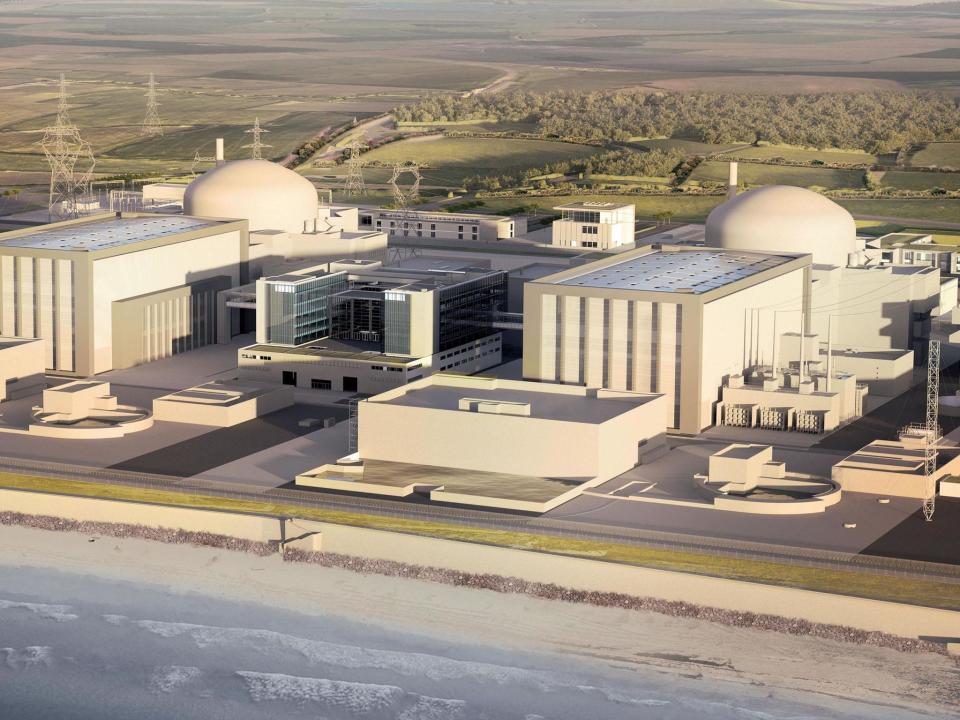Hinkley Point: Britain's nuclear white elephant trumpets again

Brits, eh. We like to think we’re all about common sense (except, well, Brexit, but we’ll park that for the moment). We certainly don’t pump money into white elephants. Surely that sort of thing is best left to dictators with God complexes. We're responsible with taxpayers’ cash!
If that is so, how on earth does the Government explain the plans for a new nuclear power plant at Hinkley Point in Somerset?
The National Audit Office has just put a swarm of new flies into that particular bottle of radioactive ointment with the release of a scathing new report.
Here’s the (withering) top line: “The Department for Business, Energy and Industrial Strategy’s deal for Hinkley Point C has locked consumers into a risky and expensive project with uncertain strategic and economic benefits.”
Ouch.
But there’s more, and as the NAO makes clear, it's we consumers who will be suffering the pain of it. The report says the Government failed to consider the costs, and the risks of the project. Moreover, the subsidy handed to its overseas backers, has ballooned.
“Delays have pushed back the nuclear power plant’s construction, and the expected cost of top-up payments under the Hinkley Point C contract for difference has increased from £6bn to £30bn.”
That’s right: £30bn. You might have read about the capital city of Myanmar, Naypyidaw, which is 7,054 square kilometres in size and roughly four and a half times the size of London (1,569 square kilometres) but with only a tenth of the population.
The cost of that white elephant has been put at just over £3bn, a bit less than a tenth of where the NAO currently has Hinkley’s subsidy, agreed to guarantee that the developers will make a profit when it is built, regardless of what happens to electricity prices.
It should be said that the project still isn’t exactly risk free for the backers. EDF had directors resign over its interest in the thing.
But let’s say EDF and its partners start to encounter difficulties during its construction. Do you think they’ll take any cost over-runs on the chin, as the contractual terms suggest that they should? Or do you think it's more likely that we will see them knocking on the Chancellor’s door in search of another hand out?
I’d bet on the latter, because that's the way these things always seem to go. The NAO certainly fears that is what will happen.
It further raises concerns about the reactor design (unproven) and EDF’s financial position (weakened since 2013).
If the NAO is even half right, then the project will go down in history as one of the more grotesque examples of ministerial folly. A great, fat white elephant on the Somerset coast whose trumpeting will be felt in the electricity bills of consumers from nearby Glastonbury to distant Glasgow.
Amyas Morse, who runs the NAO, says: “The Department has committed electricity consumers and taxpayers to a high cost and risky deal in a changing energy marketplace.”
It is true that, as he notes, the electricity market place is a dynamic one. So Hinkley could still prove to be value for money. Anything’s possible.
It is also true that while nuclear energy will always carry a risk, it still poses less of a threat to our continued healthy existence on this planet than the carbon released into the atmosphere through burning fossil fuels.
However, the NAO says the Government could have done a lot more to improve the chances of the project being a success. “We cannot say the Department has maximised the chances that it will be,” laments Mr Morse.
Unfortunately, it looks like we’re stuck with the thing.
And if the NAO’s worst fears are realised? Well, by then, the politicians and civil servants who rammed this project through, despite repeated warnings, will be retired, and on nice pensions. Their winter fuel payments will cover them against the high price of the power Hinkley produces too. Handy, that.

 Yahoo Finance
Yahoo Finance 